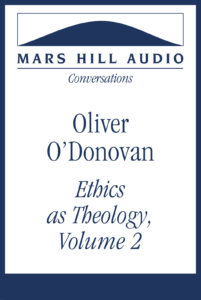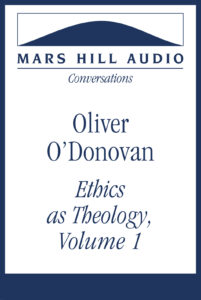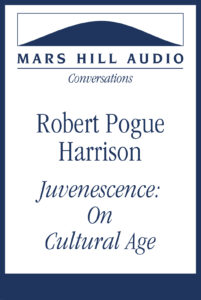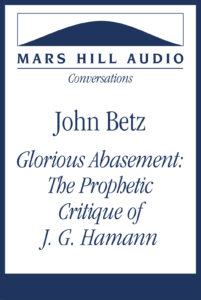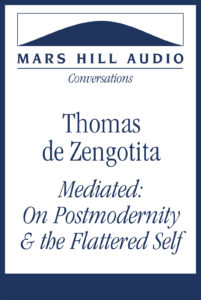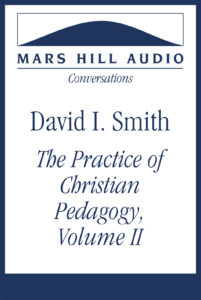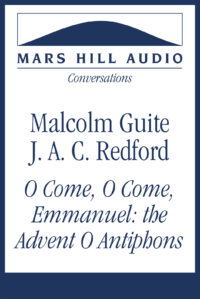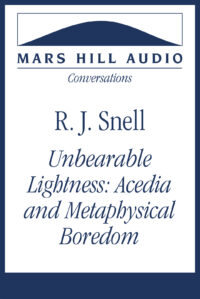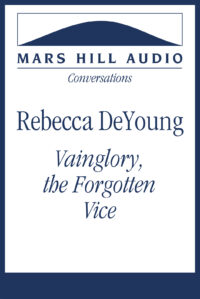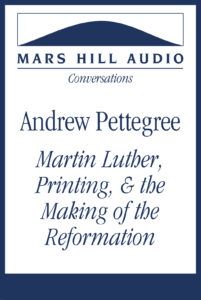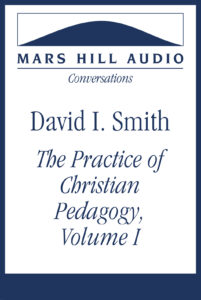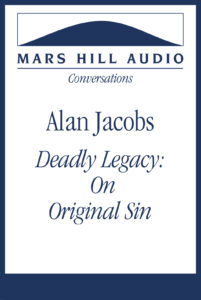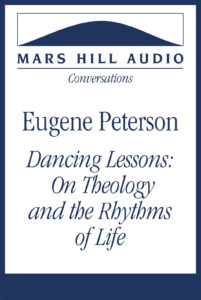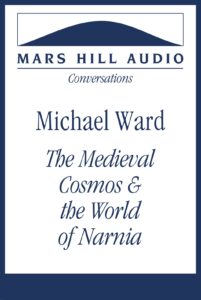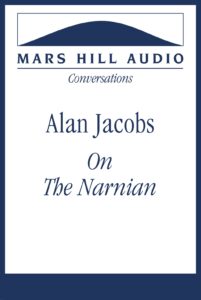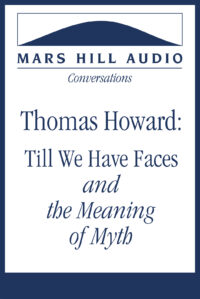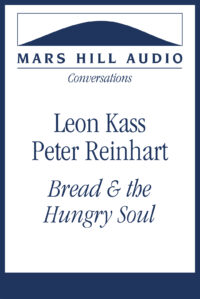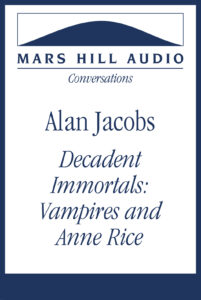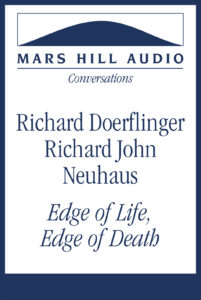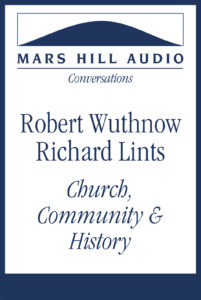Mars Hill Audio Conversations present extended dialogues with one or two guests. With a typical duration of an hour, Conversations allow a greater depth of analysis and a more extensive exchange of ideas than do our Journal interviews.
Ethics as Theology, Volume 2
Drawing from St. Augustine and figures such as Aelred of Rievaulx, Oliver O’Donovan describes how the Church, communication, community, and friendship all significantly contribute to how we understand the role of love in both ethical and political reflection. (52 minutes)
Ethics as Theology, Volume 1
Moral philosopher Oliver O’Donovan discusses the first two volumes of his three-volume set, Ethics as Theology. Among other topics, he reflects on the significance of the thinking moral subject as well as what form of moral inadequacy the “life of the flesh” suggests. (58 minutes)
Juvenescence: Robert Pogue Harrison on Cultural Age
Robert Pogue Harrison argues that Western culture is on the cusp of a new mode of civilization that can either result in a rejuvenation of the legacies of the past or in their juvenilization, the latter of which would lead to a loss of cultural memory and the infantilization of desires. (47 minutes)
Glorious Abasement: John Betz on the Prophetic Critique of J. G. Hamann
Theologian John Betz discusses the eighteenth-century philosopher and translator, Johann Georg Hamann, critic and contemporary of Immanuel Kant and other prominent figures of the German Enlightenment. (54 minutes)
Mediated: Thomas de Zengotita on Postmodernity and the Flattered Self
Thomas de Zengotita describes how communication media contribute to the widespread sense of entitlement and of identity as an autonomous chooser. The postmodern self is what Zengotita calls “the flattered self,” increasingly believing itself to be the center of the universe. (59 minutes)
The Practice of Christian Pedagogy, Volume II
David I. Smith argues that more attention needs to be given to the meaning conveyed in teaching methods and assumptions about teaching.(63 minutes)
O Come, O Come, Emmanuel: Malcolm Guite and J. A. C. Redford on the Advent O Antiphons
Poet and priest Malcolm Guite and compose J. A. C. Redford talk about how poetry and liturgy invite repetition, and also about how music interprets a text and alters how one inhabits poetry over time. (64 minutes)
Unbearable Lightness: R. J. Snell on Acedia and Metaphysical Boredom
Philosopher R. J. Snell argues that the metaphysical boredom of modernity is sustained by our deeply-held convictions about freedom and contingency, which view the former as necessary and the latter as offensive. (48 minutes)
Rebecca DeYoung on Vainglory, the Forgotten Vice
Drawing from the wisdom of the Desert Fathers, Rebecca DeYoung describes vainglory and the other “deadly sins” as capital vices from which more vices materialize. (56 minutes)
Martin Luther, Printing, and the Making of the Reformation
Historian Andrew Pettegree (Brand Luther: 1517, Printing, and the Making of the Reformation) describes how Luther’s facility for writing in German and his intuitive business sense spread ideas and transformed the distribution model of the printing industry. (55 minutes)
The Practice of Christian Pedagogy, Volume I
David I. Smith argues that teaching is not merely the transmission of ideas. Rather, there is a formative power in classroom practices and in the culture of schools.(56 minutes)
Deadly Legacy: Alan Jacobs on Original Sin
Alan Jacobs discusses his book, Original Sin: A Cultural History, (2008) a survey of how beliefs about sin have affected literature, politics, music, education, and other spheres of human culture. (60 minutes)
Dancing Lessons: On Theology and the Rhythms of Life
Pastor-theologian Eugene Peterson discusses the themes of his book, Christ Plays in Ten Thousand Places: A Conversation in Spiritual Theology. (70 minutes)
The Heav’ns and All the Powers Therein
Michael Ward makes a compelling case that the qualities attributed to the seven planets in the cosmology of antiquity and the Middle Ages are embodied in C. S. Lewis‘s seven books about Narnia. (68 minutes)
Alan Jacobs on The Narnian
Alan Jacobs discusses C. S. Lewis’s view of the imagination and his deep conviction that the shaping of the conscience requires the training of the imagination. (53 minutes)
Till We Have Faces and the Meaning of Myth
Literary critic Thomas Howard explains why C. S. Lewis’s Till We Have Faces is best understood not as a novel or fantasy but as a myth. (49 minutes)
Bread and the hungry soul
Dr. Leon Kass talks about how the activity of eating provides clues for understanding human nature. And Br. Peter Reinhart discusses the art of breadmaking as a metaphor for spiritual life. (72 minutes)
Decadent Immortals
What do Ann Rice’s The Vampire Chronicles have to say about human nature? Critic Alan Jacobs illuminates the deeper moral questions raised by Rice’s first novel, which she seems to abandon as the series evolves. (51 minutes)
Edge of Life, Edge of Death
Richard Doerflinger and Richard John Neuhaus discuss central issues in bioethics during the 1990s. (57 minutes)
Church, Community, and History
Sociologist Robert Wuthnow discusses the assets and liabilities of the small-group movement. Theologian Richard Lints explains why theological reflection is essential in Christian community. (84 minutes)
